Some prominent figures fret about what will happen when our global human workforce (currently at 3.4 billion) falls from its peak. So far, the public is paying less attention to the question of how we’ll make do when our energy slave workforce (currently at 500 billion) falls from its peak.
Peak Net Energy
Whereas oil once spewed from the ground, humans now find themselves expending immense energy on extraction methods such as fracking and offshore projects. As the energy industry’s energy consumption increases dramatically and outpaces growth in oil extraction, the energy leftover for all other modern activity will begin to decline.
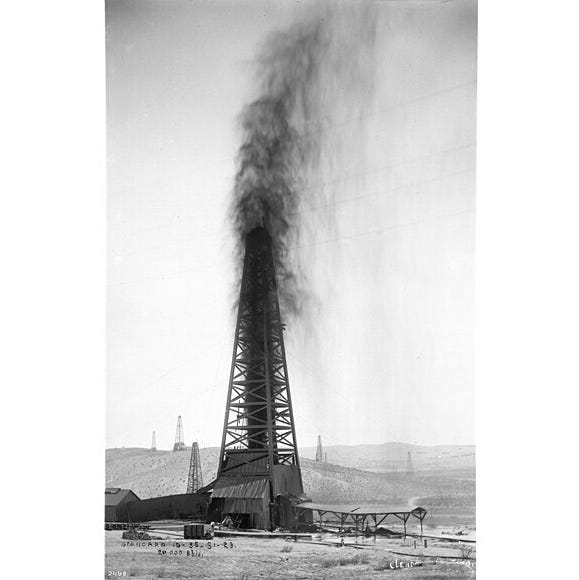

photo source, source
The phenomenon mainly eats-into diesel, which is about 25% of a standard crude oil barrel and arguably most critical to modern civilization. Diesel powers farm equipment, construction equipment, the trucks that transport essential goods and remove our waste. It also grants or at least expedites access to other energy sources. Less diesel means less ability to mine coal, to transport natural gas and to roll out “green” energy infrastructure. Since diesel plays a role in most industrial processes, shortages will likely impact all human economic activity except that which is entirely isolated from the industrial world.
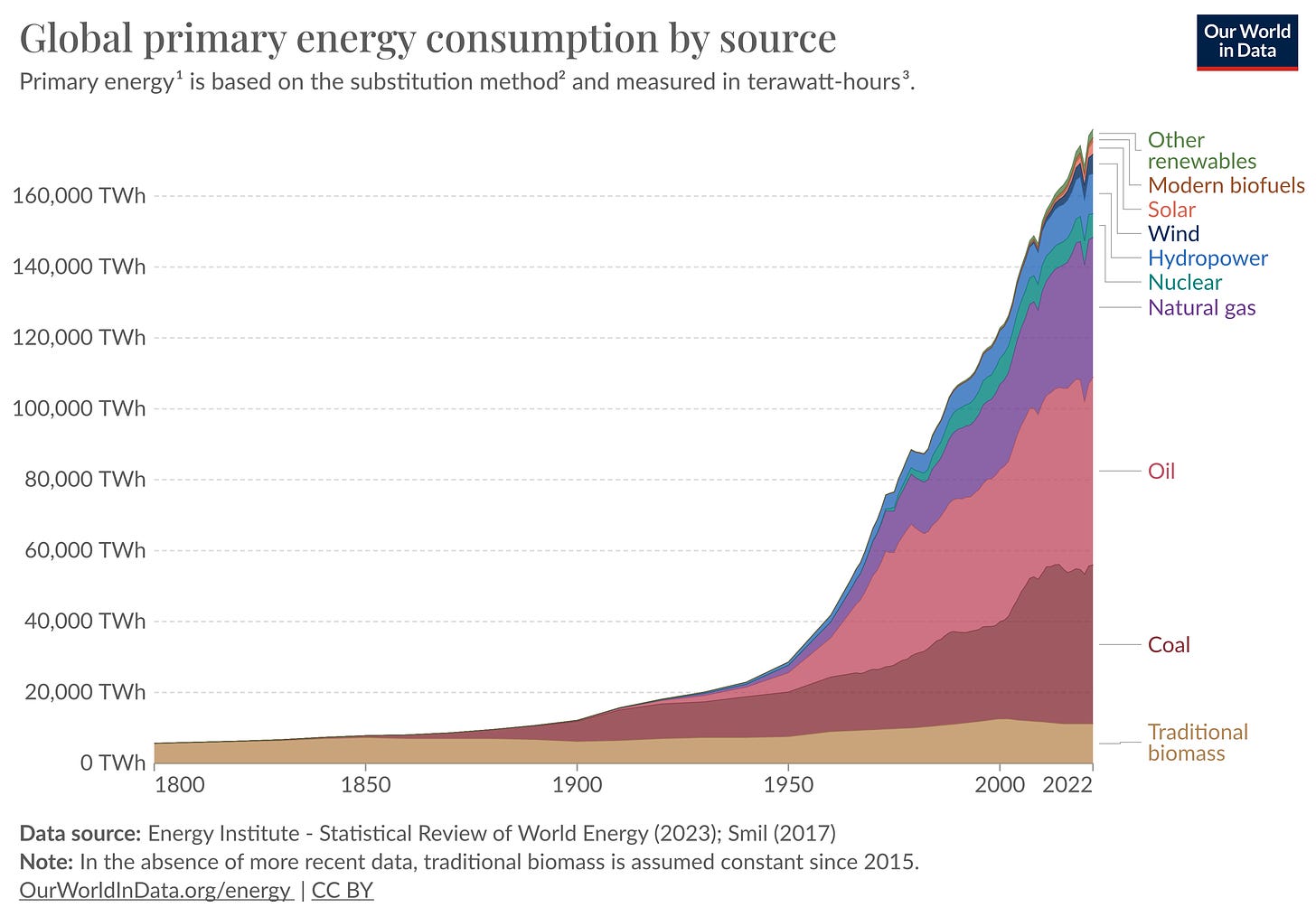
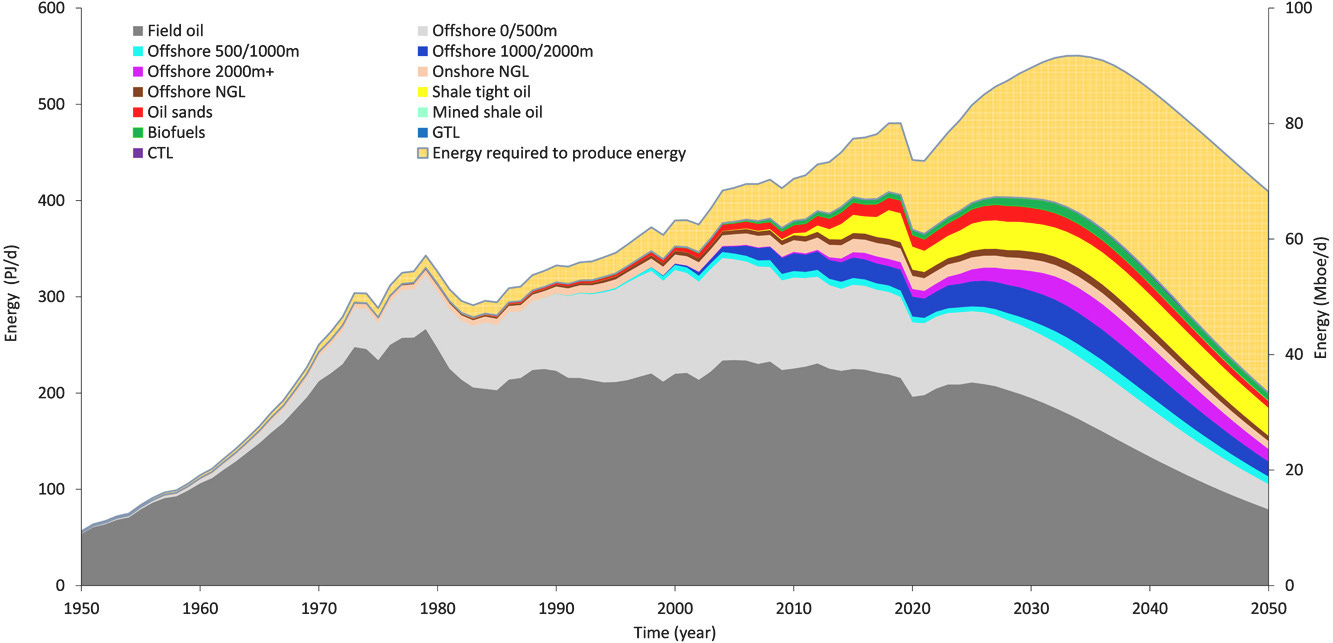
If reality plays out like the graph above, we will experience a period around 2025-2035 where energy supply continues to increase but all gains will go toward further energy extraction. Gross liquid-hydrocarbon extraction still rises while net energy plateaus. It would be a confusing decade for modern industrial civilization. Standard indicators would continue to show “economic growth”, yet scarcity would be starting to set in for goods and services - or, as the average citizen would perceive, prices would be increasing.
The following sources predict that net energy will peak and begin to decline in the 2020s:
a 2021 study by France’s National Research Institute for Agriculture, Food and the Environment , with data from Rystad Energy
a 2023 article in the Journal of Petroleum Technology
Alister Hamilton predicts that by 2040, the energy requirements of energy extraction will be so high that society will have zero net energy for other industrial activity.
Peak Oil Extraction
Peak Oil marks the point when liquid fossil-hydrocarbons become difficult to obtain at an ever-higher volume. It doesn’t necessarily mean the sudden end of fossil-hydrocarbons. It mean we’ll become unable to top our annual extraction record; our civilization’s energy supply will go from rising to falling; and we’ll be unable to uphold our current operating system.
Annual extraction rate is distinct from annual burn rate. We’ve accumulated reserves and they act as a buffer, a “stock” which allows for the dual “flows” of extraction and usage to slightly decouple.
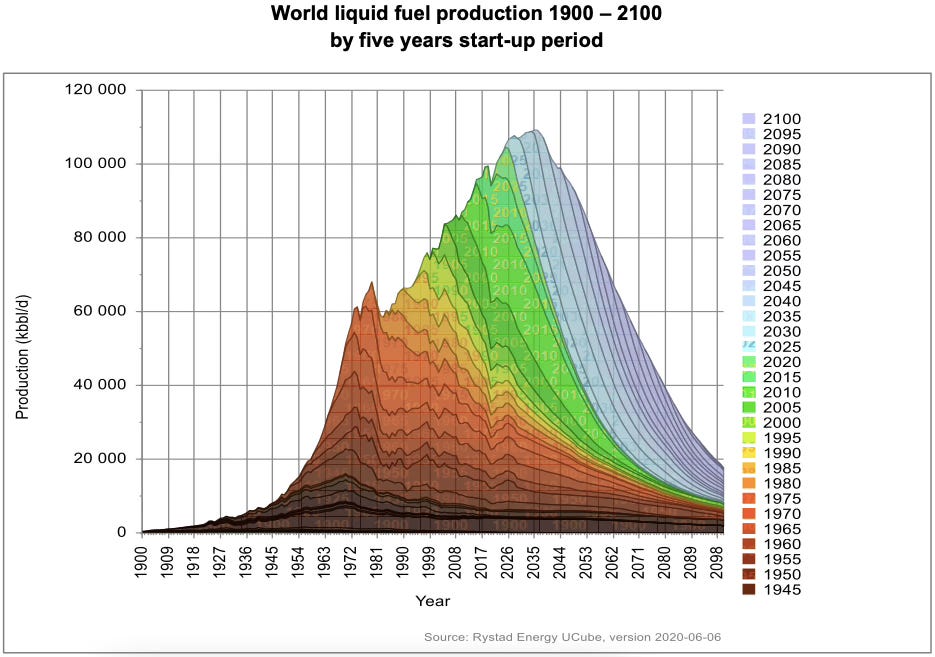
The following sources predict that gross energy will peak and begin to decline in the 2030s:
a 2020 report by The Shift Project, with data from Rystad Energy
the aforementioned 2021 study
the aforementioned 2023 article
Unconventional Extraction Methods and The Seneca Cliff
Since 2005, conventional liquid-hydrocarbon extraction has plateaued (and maybe even begun to decline). Out of desperation, civilization turned to nonconventional extraction methods (e.g. fracking and oil sands). That’s why we still see headlines about (total) oil extraction rising (e.g. “Fossil fuel-producing countries ignore climate warnings and plan to increase coal, oil and gas extraction”). Note how unconventional extraction methods yielded a boom that boosted the US to top extractor status.
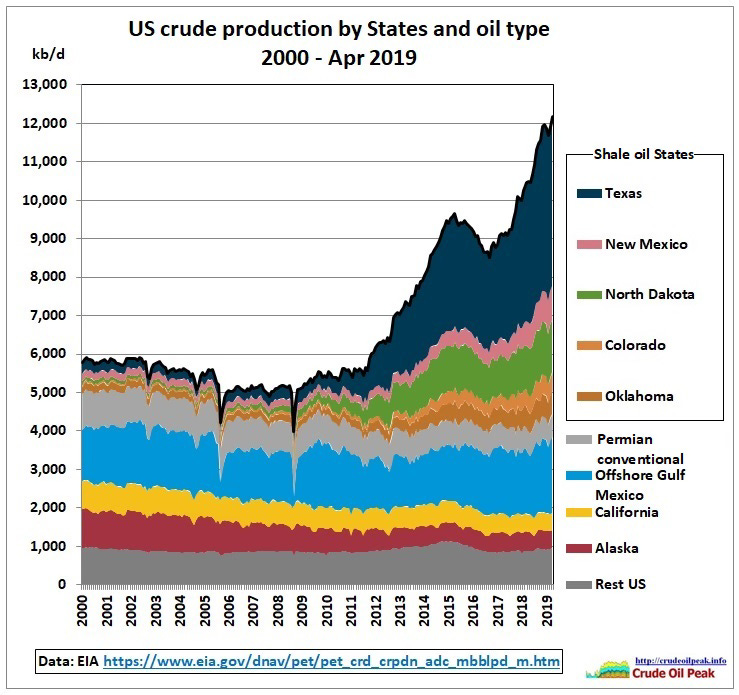
Ugo Bardi coined the term “Seneca cliff” for the possible phenomenon where liquid fossil-hydrocarbon extraction enters rapid decline. The longer humans innovate to increase annual extraction rates, the more dramatic the eventual drop-off will be.
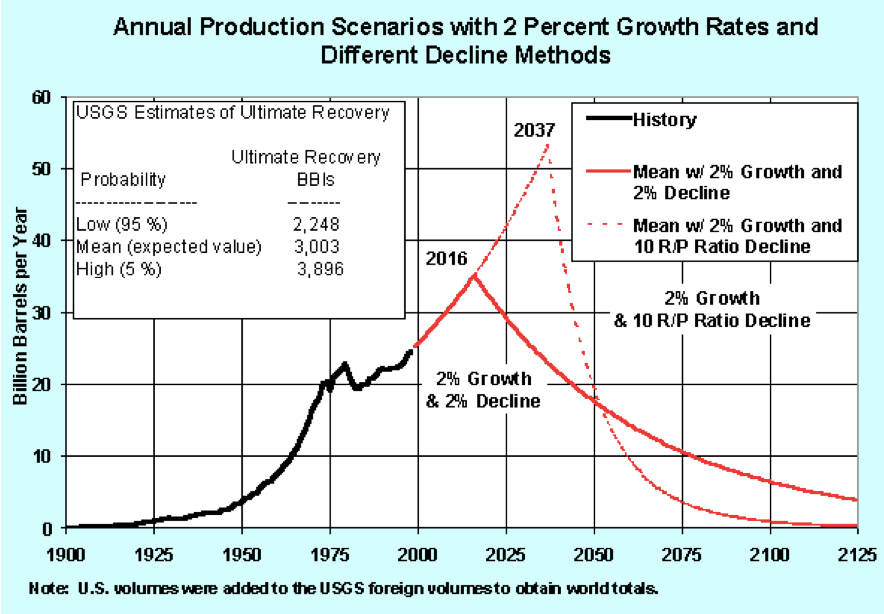
The Hirsch Report
The 2005 Hirsch Report emphasized that a global decline in oil-derived energy (and I would argue this applied at the “peak net energy” milestone) will be unlike any energy transition that humans has conducted so far:
“Intervention by governments will be required, because the economic and social implications of oil peaking would otherwise be chaotic.”
“Waiting until world oil production peaks before taking crash program action would leave the world with a significant liquid fuel deficit for more than two decades.”
“Without massive mitigation more than a decade before the fact, the problem will be pervasive and will not be temporary. Previous energy transitions (wood to coal and coal to oil) were gradual and evolutionary; oil peaking will be abrupt and revolutionary.”
For a best-case scenario, the government would’ve had to acknowledge the coming terminal decline and begun an adaptive overhaul at least two decades before the peak of gross conventional extraction of liquid fossil-hydrocarbons. However, our global industrial empire is still very much dependent on them, either directly or indirectly as they’re involved in other methods of energy generation.
“Downslope”, a substack post by The Honest Sorcerer - snippets:
“This means an ever smaller and smaller amount of fuel remaining to power heavy duty vehicles digging for coal and drilling for natural gas, or ploughing fields, delivering goods, and keeping the world economy in general alive and healthy…We will enter an age of ‘negative sum games’, when year after year there will be less and less cars, houses, clothes etc. produced on a global basis… there will be severe disruptions in supply chains all over the world (resulting in (hyper)inflation, massive shortages, riots and all the rest)”
“After some time, though, but I suspect then rather suddenly, a realization will hit that there is simply not enough collateral out there (in the form of real economically viable resources) to cover all the outstanding debt, their derivatives, and the derivatives of their derivatives — not to mention all those stocks and bonds… making the Wall Street crash of 1929 look like a leisurely Sunday afternoon… The ensuing financial crisis, the fall of many currencies, exploding bond markets, spiking then abruptly falling raw material prices, freezing world trade, bankruptcies etc. will be one bloody spectacle.”
a comic by Stuart McMillen about Buckminster Fuller and the concept of “energy slaves”
a comic by Stuart McMillen about M. King Hubbard and the concept of Peak Oil
an animation about The Great Simplification
Pablo Servigne’s talk, “A Future Without Oil”
Stand-up/skit comedian Robert Newman’s “History of Oil” show
“Approaching the Energy Cliff” - highlights:
An energy-based telling of the Great Recession: In 2007-2008, world petroleum could not keep up with demand, and since oil is tied to every economic sector, the economy slowed, bursting the mortgage-lending bubble. (Told in terms of prices: oil prices doubled, so all prices rose)
“producers are reluctant to disclose the extent of their assets or they wish to exaggerate them for greater global influence” // Wikileaks: (2011) Saudi Aramco may have claimed to have twice as much oil reserves as it did
Nearly all new additions to liquid fossil-hydrocarbon consumption have come from US shale versus conventionally-extracted liquid
Much of the fracked shale that the USA extracts cannot be used like diesel for heavy transport and the US therefore exports it
Fracking sites get exhausted rapidly. As of 2024, only 1 of the US’s 3 sites is still extracting a rising amount of liquid
an episode of Post-Carbon Institute’s “Crazy Town” podcast: Fossil-hydrocarbons and the Food Transition
an episode of Post-Carbon Institute’s “Crazy Town” podcast: Net Energy and Sustainability”
an analysis from France’s “The Shift Project”: The EU can expect to suffer oil depletion by 2030
YouTube’s “Sci Show” episode on “The How, Why and How Much of Oil”
This article from The Hill, “From ‘peak oil’ to ‘peak energy’: What might the world expect?” demonstrates all the mythology that we take for granted around Sustainable Development




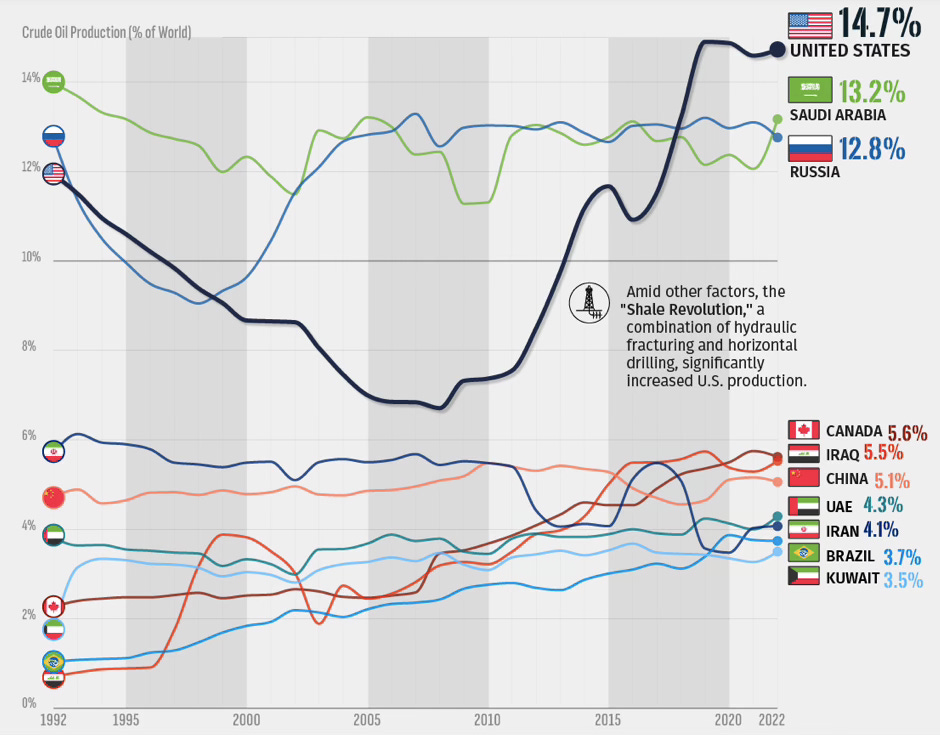

Okay the whole peak net energy thing is a meme that’s not supported by the latest studies. In fact the useful net energy of oil has increased over time its higher now then it was in the 1970s 1.96 in 1971 vs 2.04 in 2020. Think am sort of fossil fuel shill? This study was done by degrowth researchers.
https://www.nature.com/articles/s41560-024-01518-6
here’s the deal I’ve spent a lot of time talking to Flat Earthers,Creationists and various woo peddlers. And the honest truth is that collapse communities operate the exact same way those communties do and hold to the same epistemological errors. Take the inclusion of Hamilton a man without a relevant degree in the subject with no published papers to his name. In fact the math behind is model is nowhere to be found! Simply put you’re blindly following one mans bare assertion.
Great and instructive round- up, though I don't know what is "post-doom" about the content. Seems awfully like straight-up.doom.